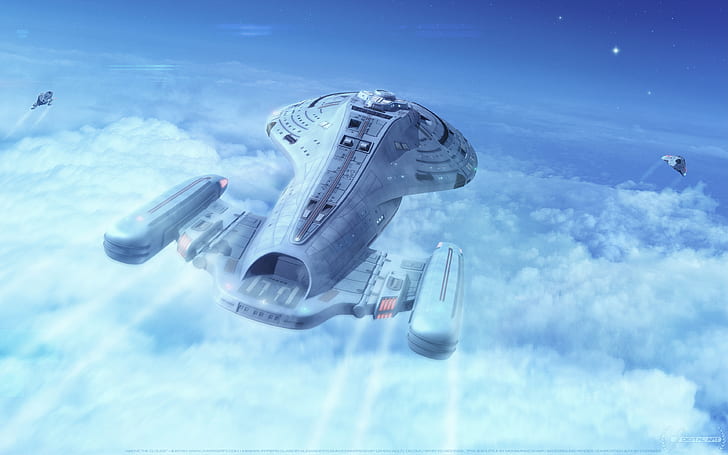

Voyager is throwing fantastic sci-fi concepts over its shoulder, concepts so good that shows like The OA would kill to base entire seasons on some of this stuff. Paramount/CBSĭon’t think Voyager has thought-provoking, mind-bending sci-fi? Think again. Yes, come for the brilliant non-male starship captain and racially diverse cast, but stay for the outrageously entertaining cornucopia of sci-fi premises. Voyager's simple variety of far-out premises might be the zaniest and most unique from Star Trek. Yet, in all the socio-political discussions of Voyager (of which there are many), what often gets overlooked is how the show was super-diverse in the types of science fiction stories it told. And, much has been said about how this was the first Trek series with a woman in the lead role - the fantastic Kate Mulgrew as Captain Kathryn Janeway. Much has been written about whether Voyager fulfilled that promise. By stranding the USS Voyager in the “Delta Quadrant,” the show was telling the audience that, in theory, the characters and crew wouldn’t encounter the kinds of things people had gotten used to on the three previous series. Even when it aired, Voyager was a bit of a throwback, a series designed to get Star Trek closer to its roots: a lone starship out in space, visiting strange new worlds, boldly going where no one had gone before.

Paramount/CBSīut Voyager isn’t like that. Kate Mulgrew as Captain Kathryn Janeway in Star Trek: Voyager.

So, when you watch Deep Space Nine now, you can see all the things we take for granted today in their infancy. Picard Season 1 was mostly about AI, and Season 2 seems focused on alternate timeline shenanigans.Īt the risk of being super-reductive, modern Star Trek is all more like Deep Space Nine, insofar as that series was one of the first big sci-fi shows (along with Babylon 5) to embrace serialization. In Season 2, time-traveling artificial intelligence was the focus, while Season 3 focused on a galaxy-wide mystery with even more time travel. In Discovery Season 1, it was all about using spores to navigate the multiverse. Each of the new shows focuses on one or two big sci-fi premises, while the other concepts take a back seat. In the 21st century, Trek is now strikingly similar to many other big sci-fi dramas, at least in terms of narrative focus. The Star Trek franchise set the standard for doing a variety of self-contained sci-fi stories - in high volume - from its debut in the ‘60s through the ‘90s. Frank Trapper/Corbis Entertainment/Getty Images The cast of Star Trek: Voyager attend their premiere in 1995.


 0 kommentar(er)
0 kommentar(er)
